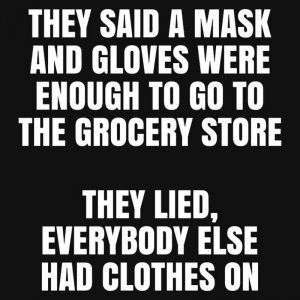4 Ways Custom Flooring Helps You Stand Out: Video
Custom tradeshow flooring can do wonders for branding and helping you stand out. Check out this short video:

Custom tradeshow flooring can do wonders for branding and helping you stand out. Check out this short video:

We can get caught up in an imaginary world pretty easily. Just try following the stock market as it bounces and bounces. And bounces. See your IRA value go UP. See it go down. Yes, it’s real money, and yes, you are hoping it does well, but until you decide to actually pull the money out and put it to use, such as retirement, it’s not real. It’s just numbers on a screen or monthly statement. No matter how much your Tesla holdings have increased, until you sell and put the cash into a bank account, it’s a (mostly) imaginary world.
Same in the world of tradeshows. You can dream and plan and work towards your next show, but in these days of COVID-19, the actual date might not set. Your flight tickets are not purchased. Your hotels are not reserved. Your booth space may not be finalized. Your booth graphics will change, but until you know exactly what products you’ll be promoting at the show, it’s hard to plan much without knowing when the show take place. Or if it’ll take place.

You can play ‘what if?’ There’s nothing wrong with a game of what if. It’s how ideas are brought forth. How they’re measured and assessed. Discarded or amended. Set aside for the future.
What if the show doesn’t happen until 2022? What if everything changes and suddenly, we have to have a new exhibit ready in three months? Playing what if doesn’t take much time, and it doesn’t commit you to anything. But it does allow you and your team to look at the various paths ahead that may or may not open up. It allows you to look at multiple contingencies. Yes, you may already be doing this, but try doing it and expanding the horizon. Try to imagine things that before may have been unimagineable.
We’re living in unprecedented times. Today you may be busier than you’ve been in months. But tomorrow you may have time to play a game of what if.
Any creative endeavor requires more than just inspiration or an idea and a burst of activity. If it’s to be seen through to a successful end, the creative act must be wrapped up in discipline. In this week’s TradeshowGuy Monday Morning Coffee, I riff for ten minutes or so on creativity and discipline:
This week’s ONE GOOD THING is the new solo album from David Lowery, main songwriter, and singer from Cracker and Camper Van Beethoven. Listen to and purchase “In The Shadow of the Bull” here.
Also on this week’s podcast: a reference to an article by Jeff Goins: Rules, Discipline and the Paradox of Creativity.
Subscribe to TradeshowGuy Monday Morning Coffee on Apple Podcasts here.
Subscribe to our YouTube Channel Tradeshow Marketing here, where the vlog version of the podcast appears weekly.
Follow these four simple steps to make sure you bring solid leads back to the office after the tradeshow is done.
A quick shout-out to Richard Erschik, who enumerated the five things you need to know in lead generation during a great podcast interview here.

The average tweet lives for 18 minutes. At least, that’s according to the AWeber blog, the platform that hosts my newsletter. Which means that most people never see your tweet. I mean, what, a million tweets a second pour out of the platform, right? Actually, I checked. It’s less than that – around 6,000 per second. But that adds up to about half a billion tweets per day.
Which means you probably missed most of my tweets. That makes me…sad? Disappointed? Hard to say. I mean, social media is what it is. But hey, I’ve had some fun and informative and hopefully useful tweets. Thought I’d re-post a few and give you a second chance. And of course, invite you over to my Twitter page here.

In speaking with industry veterans, consultants and experts, I’m starting to get the feeling that normal may not return for a long time, if ever, on the tradeshow floor.
First, let’s admit that the tradeshow world is a continuously evolving entity, and that what’s normal in one year may look a little odd just a year or two later.

Social media exploded over a couple of years. Now it’s common for companies to post photos and videos of their tradeshow experiences on social media. In fact, it’s just one of many ways that exhibitors leverage online presence.
In 2019 at NAB (National Association of Broadcasters), an experiment was under way to shift how exhibitors understood and paid for show labor and drayage. For all we know, that might have been the start of a new way of looking at tradeshow logistic costs and how they are calculated. Time will tell.
Now with social distancing appearing to be the norm for the foreseeable future, some show locations may insist (as might the exhibitors and attendees) that new protocols come into play, such as temperature checks, masks, distancing, limited attendance, greater space between booths, wider aisles. All of this will put pressure on profits and incomes; with fewer people and fewer exhibitors, it’ll be harder to show a profit.
And it’ll also put pressure on marketers, those creative types that are competing for attention along with every other exhibitor. Just showing up, setting up your exhibit, doing a few in-booth activities and giveaways, like many exhibitors have been doing for years, simply won’t cut it. In a recent interview with Marlys Arnold of Exhibit Marketer’s Café, she observed that disruptors will be the ones who get noticed. She also said that with shows coming back and audience attendance down, it’s likely that the quality of the visitors will increase. They’ll absolutely want to be there because it’s important. There’ll a higher percentage of buyers than in the past. And one other change that Marlys felt was important is that pre-show marketing will be even more critical than before.

Virtual tradeshows have blossomed in the past few months. Keynotes, break-out sessions, exhibitor presentations and more are taking the place, at least temporarily, of physical shows. And most observers I’ve talked to seem to believe that the virtual aspects of shows will stick around, even when we’re back to the physical world.
But here in the interim, marketers and tradeshow industry companies have time on their hands – time that is likely being used to adapt, learn new skills and reinvent themselves. With COVID-19 still coursing through the world, physical tradeshows will come back in fits and starts. Some observers have said that “normal” business may not be back until 2022 or 2023. We hope that is not the case. Sooner is better than later, because many people’s livelihoods are on the line.
Before we get to the insightful interview with Marlys Arnold of Exhibit Marketer’s Cafe, I test out a new Kimafun wireless microphone and explore my backyard. Because, why not? Then in the interview Marlys and I test the waters on what it will take to get back to a quote-unquote normal tradeshow world. Take a look:
Check out Exhibit Marketer’s Cafe here.
Here’s the Kimafun wireless lapel mic I’m using (thanks to Ken Newman for suggesting it!).
ONE GOOD THING: a trio of rare Beatle photographs that I share.
Subscribe to TradeshowGuy Monday Morning Coffee on Apple Podcasts here.
Subscribe to our YouTube Channel Tradeshow Marketing here, where the vlog version of the podcast appears weekly.
A TradeshowGuy Quick Hit on whether or not you can hack tradeshow success:
In numerous conversations with office managers, facility managers and safety coordinators in Oregon (and a few out of state, to be sure), it’s clear that there are not a lot of common denominators for how and when offices will deal with the return of WFH employees.
Many state agencies and professional offices still have a large number of employees working from home. Others have brought everyone back, but with closures still upcoming, some are going back.
Some companies I’ve communicated with aren’t even going to think about bringing back employees from WFH until September at the earliest.
Like I said, all over the board. Some people have older-style fabric/metal cubicles in place. Others have nothing. Many have employees spread out in large rooms, or in separate office.
But they’re all doing their best they can to adhere to CDC and local or state guidelines to keep employees, clients and visitors safe.
Given all of that, some are still looking at solutions to how they might deal with the return of employees and keeping them safe and their anxiety levels low.
Our manufacturing partner, Classic Exhibits, has shared a handful of new sales and information sheets on the PlaceLyft Modular Office dividers and desktop safety dividers. Let’s take a look:
To save, either right-click and save the images above, or download PDFs:
Looking for a low-cost, elegant solution for safety separation? Call us to find out more and to get a quote based on your office requirements.

TradeshowGuy Monday Morning Coffee is a weekly video business diary, although sometimes we veer into personal stuff. Hey, all business is personal, right? This week, I explore music and what it’s meant to me all of my life.
This week’s ONE GOOD THING: Music. Listen to some now.
Subscribe to TradeshowGuy Monday Morning Coffee on Apple Podcasts here.
Subscribe to our YouTube Channel Tradeshow Marketing here, where the vlog version of the podcast appears weekly.